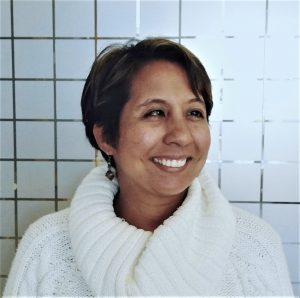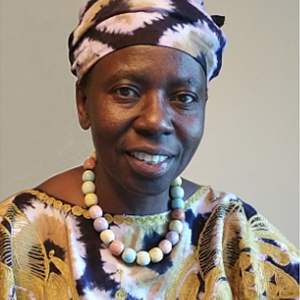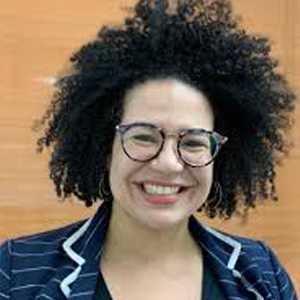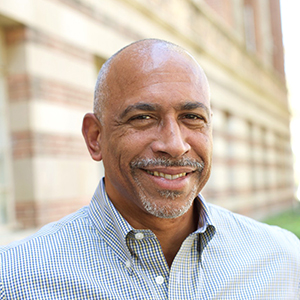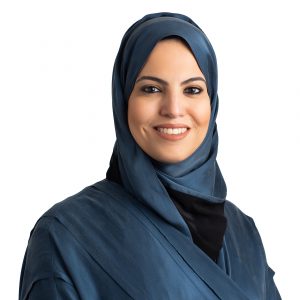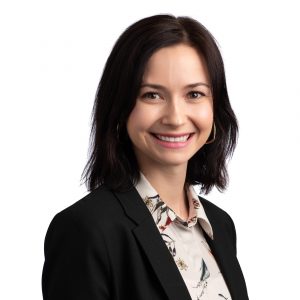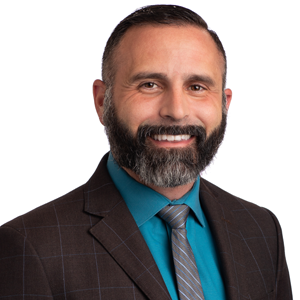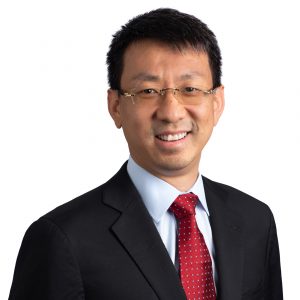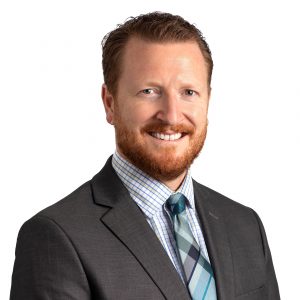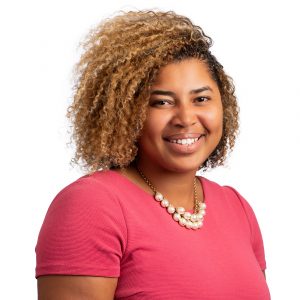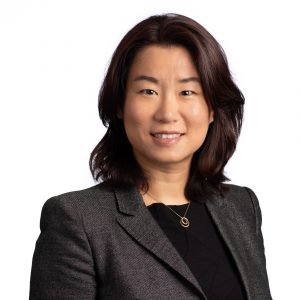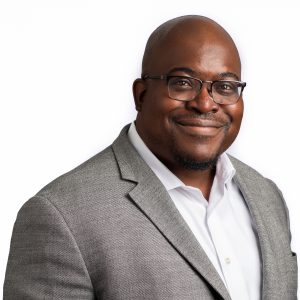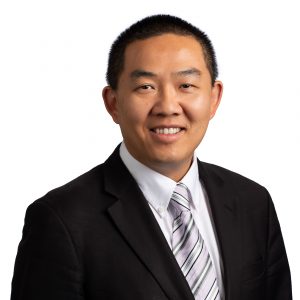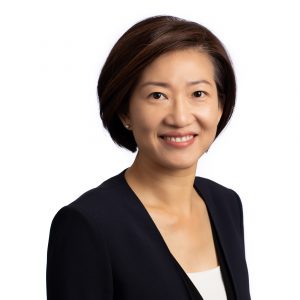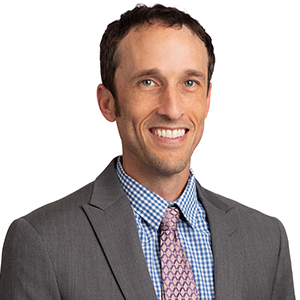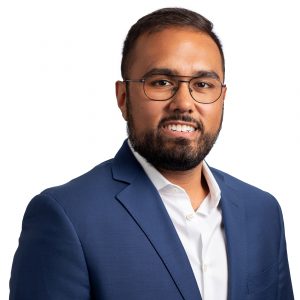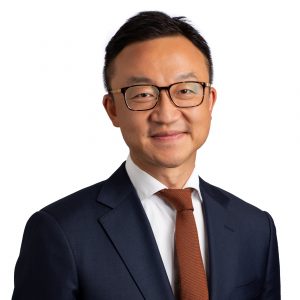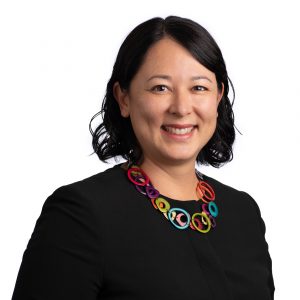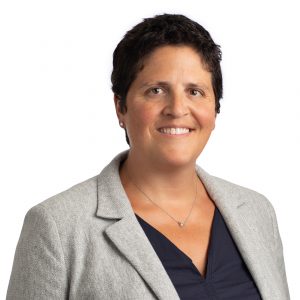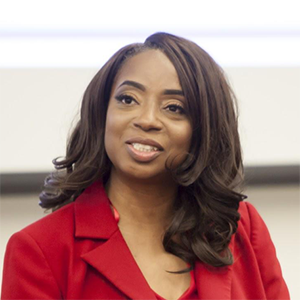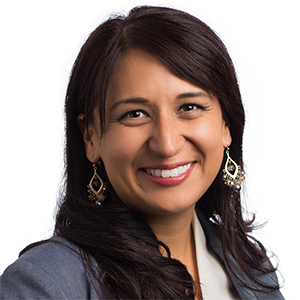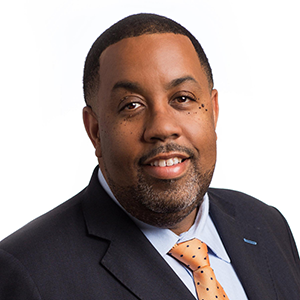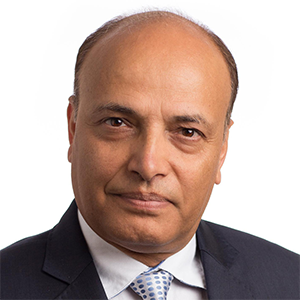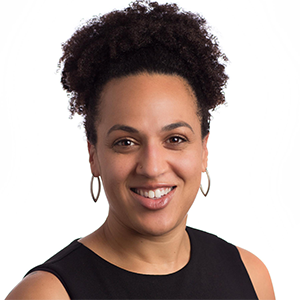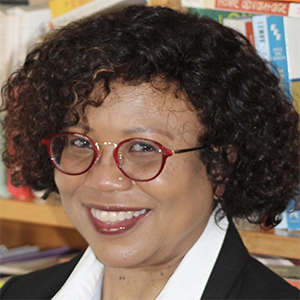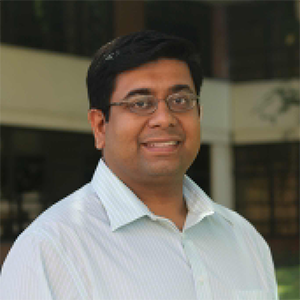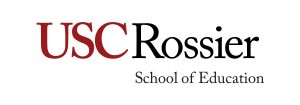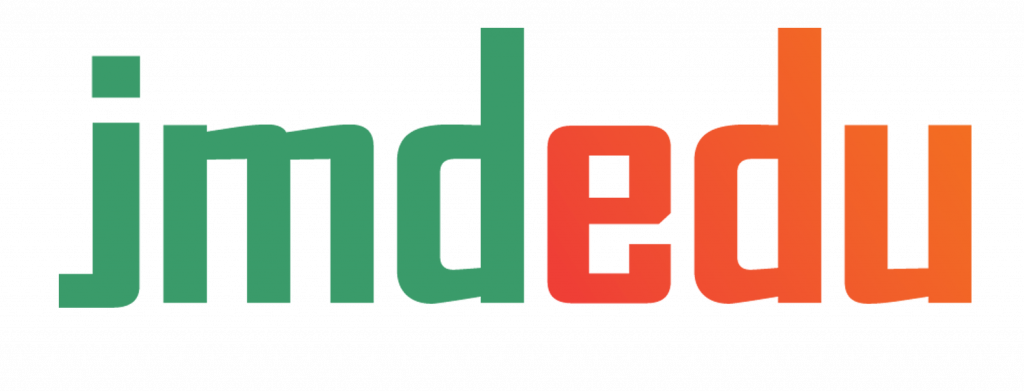Moving Forward: Rebuilding a More Just
and Equitable Educational Future
A virtual convening with hands-on workshops on policies and innovations for education equity
The USC Rossier School of Education and WISE offered a two-day joint event on 17 and 18 November 2020. This online gathering of educators and educational leaders examined global education policy responses to the pandemic and emergent solutions stemming from innovative policy solutions, pedagogy, and use of technology. Insights from global thought leaders focused on equity amidst disruption framed a range of highly interactive workshops fostering dialogue amongst participants.
Under the theme Moving Forward: Rebuilding a More Just and Equitable Educational Future, keynote speeches and workshops thought deeply and creatively about changes that are needed to help education systems emerge from the crisis stronger than before. Current disruptions are exacerbating long standing inequities. This calls for new policies and practices that can increase access and outcomes for all. The current turmoil is also revealing new insights and possibilities about how education might operate differently. This opens the door for bold and innovative ideas about ways to improve the educational experience of every student. The purpose of this event was to assemble a global gathering to think about these ideas together and develop strategies to advance the vision of a more equitable educational future.
If you have any questions, please write to wise-community@wise.org.qa
Workshop brief-ups
- Implicit Bias: Unintentional and Inequitable Consequences for Policy (PDF, 159Ko)
- Inclusion in the Emerging Digital Landscape: Incorporating Accessibility Features for People with Disabilities (PDF, 156Ko)
- A Pandemic of Preparation: Shaping Teacher Development for the Post-COVID Economy (PDF, 151Ko)
- Creating New Strategies to Engage Young Learners Online (PDF, 119Ko)
- China’s Education Response to COVID-19: Lessons for Addressing K-12 Digital Transformation (PDF, 205Ko)
- Creating Higher Education Policies to Enhance New Employability Skills to Succeed in the Post-COVID World (PDF, 159Ko)
- Four Approaches to Adjusting Higher Education Practices for a Virtual Era
- Don’t Waste a Crisis: Using this Policy Window to Make Long-Term Changes in Admissions Evaluation and Testing (PDF, 195Ko)
- Leveraging Access Through Virtual Instruction to Maximize Culturally Sustaining Pedagogy in Teacher Preparation (PDF, 151Ko)
- Together Apart: Developing Social Emotional Skills to Connect Our Students Globally Through Virtual Platforms
- Forging New Ideas of Collaborations in Postsecondary International Partnerships Post COVID-19 (PDF, 199Ko)
- Promoting Community Driven Innovation (PDF, 162Ko)
- How Young People Can Move Us Forward: Incorporating Student Voice in Education During a Global Crisis (PDF, 168Ko)
- Crowdsourcing Solutions for Parents Who Have Lost Their Mind Over Distance Learning (PDF, 153Ko)
- Cultivating Your Entrepreneurial Mindset for Education Reinvention (PDF, 180Ko)
- Rethinking Holistic Admissions in Higher Education – New Approaches to Advance Equity During the Pandemic and Beyond (PDF, 188Ko)
Program
Moving Forward: Rebuilding a more Just and Equitable Educational Future
Using Crisis as Opportunity to Enact More Equitable Policies and Practices
This day focused on policies and practices designed to help our most marginalized learners. It discussed the role of leaders in understanding challenges, developing plans, and supporting the implementation of new ideas.
- 19:00-19:10: Welcome and Setting the Scene
- 19:10-19:25: Keynote
Pedro Noguera, Dean of USC Rossier School of Education - 19:25-19:30: Introduction to the Workshops
Rob Filback, Professor of Clinical Education, Rossier School of Education - 19:30-20:30: Workshops
Please scroll down for more information about the workshops -
20:30-20:35: Break
-
20:35- 20:50: Keynote: Policies for Racial Equality in Education
Selma Moreira, Executive Director of Baobá, Fundo para Equidade Racial -
20:50-21:00: Closing & Workshop Takeaways
Mark Power Robison, Chair of the Global Executive Doctor of Education program of the USC Rossier School of Education
Implicit Bias: Unintentional and Inequitable Consequences for Policy
Dhabya AL-Buenain, Principal, Qatar Banking Studies and Business Administration Secondary School for Girls
William Johnson, Director of Educational Strategy, William Caspar Graustein Memorial Fund
Jennifer Zinn, Senior Specialist for Improvement & Leadership, Denver Public Schools
The global pandemic has exacerbated deep inequities, including in our systems of education. Achieving sustainable solutions requires us to comprehensively rethink how to support equitable outcomes for all. Taking the necessary steps in creating more equitable policies requires that we figure out our own implicit biases. The goal of this workshop is to engage all participants in thoughtful analysis of understanding how implicit biases show up and influence how we engage in policy development or decision making.
Inclusion in the Emerging Digital Landscape: Incorporating Accessibility Features for People with Disabilities
David Calvo, Principal, Los Angeles Academy of Arts and Enterprise
Sakinah P. Harrison, National Program Officer for Education & Learning and Family Economic Security, W.K. Kellogg Foundation in Battle Creek, Michigan
Over a billion people, or about 15% of the global population, experience some form of disability. In the rapid pivot from brick-and-mortar to digital learning, students with disabilities are struggling to access information and communication technologies (ICT). This session will provide an overview of trends regarding people with disabilities and some of the digital features available to help people with disabilities and the community at large.
A Pandemic of Preparation: Shaping Teacher Development for the Post-COVID Economy
Ryan Gleason, Director of Education and Leadership, Las Virgenes Unified School District
Fatma Saoud Al-Jufairi, Skilled multipotentialite
The forces of globalization that have impacted education will only be exacerbated by the current global pandemic. This session will help prepare us for the post-COVID economy by focusing on the pandemic’s influences on education systems and on the learners that are the beneficiaries of those systems. The key question this session will address is how teacher preparation will need to shift and evolve worldwide in order to prepare students for the post-COVID era.
Creating New Strategies to Engage Young Learners Online
Chang (Monica) He, Founder and CEO, Duuno Technology Limited
Jed Oppenheim, Program Officer, W.K. Kellogg Foundation in Jackson, Mississippi
The recent pandemic has forced even the youngest students to learn online. Fortunately, innovative practices to engage young learners are emerging. We will explore together the latest research-informed practices for how to support young children learning online. This workshop is intended for early care and education professionals, parents, and researchers. We will discover new strategies to support teachers’ and parents’ interaction with kids and identify practical tools to apply at home or at school.
China’s Education Response to COVID-19: Lessons for Addressing K-12 Digital Transformation
Cervantes Lee, Head of International Capital Markets, China Visionary Group
Victoria Shiroma Wilson, President, Exceptional Futures Inc.
This workshop will explore what can be learned from China’s rapid and comprehensive education response to COVID-19. We will examine underlying driving forces, including the leadership system, compliance norms, and China’s K-12 online education mandate. The workshop will then consider strategies and practices that can be extracted from China’s example and that participants can apply to their own transitions to online K-12 education.
Creating Higher Education Policies to Enhance New Employability Skills to Succeed in the Post-COVID World
Shwu-Yuan (Mandy) Lee, CEO, JAPIN Group in Taiwan
Hongdou (Debby) Zhong, Founder, Edmmersion Academy
The eruption of the COVID-19 pandemic has caused many businesses to shut down and many people to lose their jobs. The new constraints of the job market and increased unemployment rates will mean unprecedented competitiveness for graduating college students. This workshop will explore how post-secondary education systems can prepare students to deal with these new realities and enhance the development of new employability skills to help their graduates succeed.
Four Approaches to Adjusting Higher Education Practices for a Virtual Era
Shamit Patel, Founder and Managing Director, AGL and Associates
Magdalena Bogacz, Lecturer of Philosophy, Ethics, and Critical Thinking, California State University, Bakersfield and Bakersfield College
Participants will have the opportunity to learn about the virtual learning preferences of post-secondary students based on several recent studies. This interactive workshop will focus on presenting four sets of strategies for providing virtual education more effectively. The session will utilize a case study approach, allowing each participant to apply what they’ve learned immediately to their own professional situations.
Don’t Waste a Crisis: Using this Policy Window to Make Long-Term Changes in Admissions Evaluation and Testing
Bo (Paul) Shao, Managing Director of EMBA program of Washington University in St. Louis and Fudan University
Shaohui (Steve) Chen, Director of International Relations and Director of Graduate Admissions, School of Business at the University of California, Riverside
The COVID-19 pandemic has disrupted the infrastructure of testing and accelerated exponentially the test-optional movement. Four-year colleges around the world, including the University of California, have announced either temporary or permanent shifts toward test-optional admissions. This creates a unique policy window to expand access for students from racially and economically marginalized backgrounds. This workshop will explore ways to more effectively place equity at the center of admissions processes.
- 19:00-19:10: Welcome and Setting the Scene
- 19:10-19:25: Keynote
Pedro Noguera, Dean of USC Rossier School of Education - 19:25-19:30: Introduction to the Workshops
Rob Filback, Professor of Clinical Education, Rossier School of Education - 19:30-20:30: Workshops
Please scroll down for more information about the workshops -
20:30-20:35: Break
-
20:35- 20:50: Keynote: Policies for Racial Equality in Education
Selma Moreira, Executive Director of Baobá, Fundo para Equidade Racial -
20:50-21:00: Closing & Workshop Takeaways
Mark Power Robison, Chair of the Global Executive Doctor of Education program of the USC Rossier School of Education
Implicit Bias: Unintentional and Inequitable Consequences for Policy
Dhabya AL-Buenain, Principal, Qatar Banking Studies and Business Administration Secondary School for Girls
William Johnson, Director of Educational Strategy, William Caspar Graustein Memorial Fund
Jennifer Zinn, Senior Specialist for Improvement & Leadership, Denver Public Schools
The global pandemic has exacerbated deep inequities, including in our systems of education. Achieving sustainable solutions requires us to comprehensively rethink how to support equitable outcomes for all. Taking the necessary steps in creating more equitable policies requires that we figure out our own implicit biases. The goal of this workshop is to engage all participants in thoughtful analysis of understanding how implicit biases show up and influence how we engage in policy development or decision making.
Inclusion in the Emerging Digital Landscape: Incorporating Accessibility Features for People with Disabilities
David Calvo, Principal, Los Angeles Academy of Arts and Enterprise
Sakinah P. Harrison, National Program Officer for Education & Learning and Family Economic Security, W.K. Kellogg Foundation in Battle Creek, Michigan
Over a billion people, or about 15% of the global population, experience some form of disability. In the rapid pivot from brick-and-mortar to digital learning, students with disabilities are struggling to access information and communication technologies (ICT). This session will provide an overview of trends regarding people with disabilities and some of the digital features available to help people with disabilities and the community at large.
A Pandemic of Preparation: Shaping Teacher Development for the Post-COVID Economy
Ryan Gleason, Director of Education and Leadership, Las Virgenes Unified School District
Fatma Saoud Al-Jufairi, Skilled multipotentialite
The forces of globalization that have impacted education will only be exacerbated by the current global pandemic. This session will help prepare us for the post-COVID economy by focusing on the pandemic’s influences on education systems and on the learners that are the beneficiaries of those systems. The key question this session will address is how teacher preparation will need to shift and evolve worldwide in order to prepare students for the post-COVID era.
Creating New Strategies to Engage Young Learners Online
Chang (Monica) He, Founder and CEO, Duuno Technology Limited
Jed Oppenheim, Program Officer, W.K. Kellogg Foundation in Jackson, Mississippi
The recent pandemic has forced even the youngest students to learn online. Fortunately, innovative practices to engage young learners are emerging. We will explore together the latest research-informed practices for how to support young children learning online. This workshop is intended for early care and education professionals, parents, and researchers. We will discover new strategies to support teachers’ and parents’ interaction with kids and identify practical tools to apply at home or at school.
China’s Education Response to COVID-19: Lessons for Addressing K-12 Digital Transformation
Cervantes Lee, Head of International Capital Markets, China Visionary Group
Victoria Shiroma Wilson, President, Exceptional Futures Inc.
This workshop will explore what can be learned from China’s rapid and comprehensive education response to COVID-19. We will examine underlying driving forces, including the leadership system, compliance norms, and China’s K-12 online education mandate. The workshop will then consider strategies and practices that can be extracted from China’s example and that participants can apply to their own transitions to online K-12 education.
Creating Higher Education Policies to Enhance New Employability Skills to Succeed in the Post-COVID World
Shwu-Yuan (Mandy) Lee, CEO, JAPIN Group in Taiwan
Hongdou (Debby) Zhong, Founder, Edmmersion Academy
The eruption of the COVID-19 pandemic has caused many businesses to shut down and many people to lose their jobs. The new constraints of the job market and increased unemployment rates will mean unprecedented competitiveness for graduating college students. This workshop will explore how post-secondary education systems can prepare students to deal with these new realities and enhance the development of new employability skills to help their graduates succeed.
Four Approaches to Adjusting Higher Education Practices for a Virtual Era
Shamit Patel, Founder and Managing Director, AGL and Associates
Magdalena Bogacz, Lecturer of Philosophy, Ethics, and Critical Thinking, California State University, Bakersfield and Bakersfield College
Participants will have the opportunity to learn about the virtual learning preferences of post-secondary students based on several recent studies. This interactive workshop will focus on presenting four sets of strategies for providing virtual education more effectively. The session will utilize a case study approach, allowing each participant to apply what they’ve learned immediately to their own professional situations.
Don’t Waste a Crisis: Using this Policy Window to Make Long-Term Changes in Admissions Evaluation and Testing
Bo (Paul) Shao, Managing Director of EMBA program of Washington University in St. Louis and Fudan University
Shaohui (Steve) Chen, Director of International Relations and Director of Graduate Admissions, School of Business at the University of California, Riverside
The COVID-19 pandemic has disrupted the infrastructure of testing and accelerated exponentially the test-optional movement. Four-year colleges around the world, including the University of California, have announced either temporary or permanent shifts toward test-optional admissions. This creates a unique policy window to expand access for students from racially and economically marginalized backgrounds. This workshop will explore ways to more effectively place equity at the center of admissions processes.
Fostering Innovation to Build More Just and Equitable Education Systems
This day will focus on sharing and creating innovative strategies that build on these principles and hold promise for helping education systems emerge stronger and more equitable for all.
- 19:00-19:10: Welcome and Setting the Scene
- 19:10-19:25: Keynote
Musimbi Kanyoro, Chair of the Board, UWC International - 19:25-19:30: Introduction to the Workshops
Cathy Krop, Associate Professor of Clinical Education, Rossier School of Education - 19:30-20:30: Workshops
Please scroll down for more information about the workshops -
20:30-20:35: Break
-
20:35- 20:50: Keynote: Innovating for More Inclusive Education Systems
Nafisa Baboo, Director Inclusive Education, Light for the World -
20:50-21:00: Closing & Workshop Takeaways
Mark Power Robison, Chair of the Global Executive Doctor of Education program of the USC Rossier School of Education
Leveraging Access Through Virtual Instruction to Maximize Culturally Sustaining Pedagogy in Teacher Preparation
Dhabya AL-Buenain, Principal, Qatar Banking Studies and Business Administration Secondary School for Girls
William Johnson, Director of Educational Strategy, William Caspar Graustein Memorial Fund
Jennifer Zinn, Senior Specialist for Improvement & Leadership, Denver Public Schools
This workshop will focus on leveraging virtual instruction to ensure aspiring teachers are learning from outstanding teachers who have success with marginalized populations. We will anchor our brainstorming in culturally relevant pedagogy. The purpose is to move all participants forward on the journey toward equity in education systems. Participants will share successes and generate strategies that can be implemented in their home regions.
Together Apart: Developing Social Emotional Skills to Connect Our Students Globally Through Virtual Platforms
Magdalena Bogacz, Lecturer of Philosophy, Ethics, and Critical Thinking, California State University, Bakersfield and Bakersfield College
Shamit Patel, Founder and Managing Director, AGL and Associates
This challenging time presents an opportunity for students to connect virtually with peers on a global scale in ways we had not fully explored before. Students can bridge the physical distance that separates them through connecting virtually and deepen their learning by building global communities, collaborations and understanding. The purpose of this workshop is to explore ways to build social emotional skills and competencies so that students can better connect globally in virtual settings.
Forging New Ideas of Collaborations in Postsecondary International Partnerships Post COVID-19
Shaohui (Steve) Chen, Director of International Relations and Director of Graduate Admissions, School of Business at the University of California, Riverside
Bo (Paul) Shao, Managing Director of EMBA program of Washington University in St. Louis and Fudan University
The pandemic adds momentum to the deglobalization trend and limits international student mobility. Traditional international partnerships between universities will need to be rethought and built anew. At the same time, the desire for a foreign education and international exchange opportunities are still strong, from both the perspective of students and institutions involved. This workshop explores new models of international collaboration and partnerships for postsecondary institutions during and post COVID-19.
Promoting Community Driven Innovation
Sakinah P. Harrison, National Program Officer for Education & Learning and Family Economic Security, W.K. Kellogg Foundation in Battle Creek, Michigan
David Calvo, Principal, Los Angeles Academy of Arts and Enterprise
As communities work through how to be responsive to a global crisis, barriers have been removed to make space for solutions driven by communities furthest removed from opportunity. This session focuses on innovations around the world that are reimagining education through a lens that is equity-driven, centered on child well-being and community-focused. Participants will examine community driven innovations and identify key strategies that center the well-being of children and communities.
How Young People Can Move Us Forward: Incorporating Student Voice in Education During a Global Crisis
Jed Oppenheim, Program Officer, W.K. Kellogg Foundation in Jackson, Mississippi
Chang (Monica) He, Founder and CEO, Duuno Technology Limited
Students are often left out of the decisions that most impact their education. In the context of this global crisis, as education institutions attempt to respond and plan for what happens later, it is more important than ever to include students in the decisions that most impact them. This session will work to design a student-centered approach to help incorporate student voice into pedagogy, curriculum, student well-being and other parts of the educational experience in your institutions.
Crowdsourcing Solutions for Parents Who Have Lost Their Mind Over Distance Learning
Fatma Saoud Al-Jufairi, Programs Manager, Qatar Leadership Center
Ryan Gleason, Director of Education and Leadership, Las Virgenes Unified School District
As a result of the closure of schools due to the current COVID-19 pandemic, a new and stronger relationship between schools and parents is required, and parents have assumed new roles in their children’s instruction and learning. Online learning requirements have created new challenges and responsibilities for parents, calling for innovative ideas, tools, and practices to navigate this unprecedented time. In this session, we will facilitate a collaborative discussion about how the parent-to-school dynamic is being reframed globally and co-construct global innovative practices for both during the pandemic and beyond.
Cultivating Your Entrepreneurial Mindset for Education Reinvention
Victoria Shiroma Wilson, President, Exceptional Futures Inc.
Cervantes Lee, Head of International Capital Markets, China Visionary Group
While many innovative ideas emerge during times of disruption, very few ideas make it to fruition due to factors around the system, the stakeholder, and self. Losing these ideas amount to a loss for all those we serve. This session will focus on developing our entrepreneurial mindset and skills that can be learned and scaled as we work through a programmatic reinvention process.
Rethinking Holistic Admissions in Higher Education – New Approaches to Advance Equity During the Pandemic and Beyond
Hongdou (Debby) Zhong, Founder, Edmmersion Academy
Shwu-Yuan (Mandy) Lee, CEO, JAPIN Group in Taiwan
The pandemic has affected traditional higher education admissions criteria, pushing many universities to consider more holistic approaches to admissions that were already gaining momentum, including test-optional strategies. In this workshop, participants will discuss and develop together new ideas and approaches to redefine and rethink holistic admissions in different parts of the world during the pandemic and beyond, and how these can be used to advance equity.
- 19:00-19:10: Welcome and Setting the Scene
- 19:10-19:25: Keynote
Musimbi Kanyoro, Chair of the Board, UWC International - 19:25-19:30: Introduction to the Workshops
Cathy Krop, Associate Professor of Clinical Education, Rossier School of Education - 19:30-20:30: Workshops
Please scroll down for more information about the workshops -
20:30-20:35: Break
-
20:35- 20:50: Keynote: Innovating for More Inclusive Education Systems
Nafisa Baboo, Director Inclusive Education, Light for the World -
20:50-21:00: Closing & Workshop Takeaways
Mark Power Robison, Chair of the Global Executive Doctor of Education program of the USC Rossier School of Education
Leveraging Access Through Virtual Instruction to Maximize Culturally Sustaining Pedagogy in Teacher Preparation
Dhabya AL-Buenain, Principal, Qatar Banking Studies and Business Administration Secondary School for Girls
William Johnson, Director of Educational Strategy, William Caspar Graustein Memorial Fund
Jennifer Zinn, Senior Specialist for Improvement & Leadership, Denver Public Schools
This workshop will focus on leveraging virtual instruction to ensure aspiring teachers are learning from outstanding teachers who have success with marginalized populations. We will anchor our brainstorming in culturally relevant pedagogy. The purpose is to move all participants forward on the journey toward equity in education systems. Participants will share successes and generate strategies that can be implemented in their home regions.
Together Apart: Developing Social Emotional Skills to Connect Our Students Globally Through Virtual Platforms
Magdalena Bogacz, Lecturer of Philosophy, Ethics, and Critical Thinking, California State University, Bakersfield and Bakersfield College
Shamit Patel, Founder and Managing Director, AGL and Associates
This challenging time presents an opportunity for students to connect virtually with peers on a global scale in ways we had not fully explored before. Students can bridge the physical distance that separates them through connecting virtually and deepen their learning by building global communities, collaborations and understanding. The purpose of this workshop is to explore ways to build social emotional skills and competencies so that students can better connect globally in virtual settings.
Forging New Ideas of Collaborations in Postsecondary International Partnerships Post COVID-19
Shaohui (Steve) Chen, Director of International Relations and Director of Graduate Admissions, School of Business at the University of California, Riverside
Bo (Paul) Shao, Managing Director of EMBA program of Washington University in St. Louis and Fudan University
The pandemic adds momentum to the deglobalization trend and limits international student mobility. Traditional international partnerships between universities will need to be rethought and built anew. At the same time, the desire for a foreign education and international exchange opportunities are still strong, from both the perspective of students and institutions involved. This workshop explores new models of international collaboration and partnerships for postsecondary institutions during and post COVID-19.
Promoting Community Driven Innovation
Sakinah P. Harrison, National Program Officer for Education & Learning and Family Economic Security, W.K. Kellogg Foundation in Battle Creek, Michigan
David Calvo, Principal, Los Angeles Academy of Arts and Enterprise
As communities work through how to be responsive to a global crisis, barriers have been removed to make space for solutions driven by communities furthest removed from opportunity. This session focuses on innovations around the world that are reimagining education through a lens that is equity-driven, centered on child well-being and community-focused. Participants will examine community driven innovations and identify key strategies that center the well-being of children and communities.
How Young People Can Move Us Forward: Incorporating Student Voice in Education During a Global Crisis
Jed Oppenheim, Program Officer, W.K. Kellogg Foundation in Jackson, Mississippi
Chang (Monica) He, Founder and CEO, Duuno Technology Limited
Students are often left out of the decisions that most impact their education. In the context of this global crisis, as education institutions attempt to respond and plan for what happens later, it is more important than ever to include students in the decisions that most impact them. This session will work to design a student-centered approach to help incorporate student voice into pedagogy, curriculum, student well-being and other parts of the educational experience in your institutions.
Crowdsourcing Solutions for Parents Who Have Lost Their Mind Over Distance Learning
Fatma Saoud Al-Jufairi, Programs Manager, Qatar Leadership Center
Ryan Gleason, Director of Education and Leadership, Las Virgenes Unified School District
As a result of the closure of schools due to the current COVID-19 pandemic, a new and stronger relationship between schools and parents is required, and parents have assumed new roles in their children’s instruction and learning. Online learning requirements have created new challenges and responsibilities for parents, calling for innovative ideas, tools, and practices to navigate this unprecedented time. In this session, we will facilitate a collaborative discussion about how the parent-to-school dynamic is being reframed globally and co-construct global innovative practices for both during the pandemic and beyond.
Cultivating Your Entrepreneurial Mindset for Education Reinvention
Victoria Shiroma Wilson, President, Exceptional Futures Inc.
Cervantes Lee, Head of International Capital Markets, China Visionary Group
While many innovative ideas emerge during times of disruption, very few ideas make it to fruition due to factors around the system, the stakeholder, and self. Losing these ideas amount to a loss for all those we serve. This session will focus on developing our entrepreneurial mindset and skills that can be learned and scaled as we work through a programmatic reinvention process.
Rethinking Holistic Admissions in Higher Education – New Approaches to Advance Equity During the Pandemic and Beyond
Hongdou (Debby) Zhong, Founder, Edmmersion Academy
Shwu-Yuan (Mandy) Lee, CEO, JAPIN Group in Taiwan
The pandemic has affected traditional higher education admissions criteria, pushing many universities to consider more holistic approaches to admissions that were already gaining momentum, including test-optional strategies. In this workshop, participants will discuss and develop together new ideas and approaches to redefine and rethink holistic admissions in different parts of the world during the pandemic and beyond, and how these can be used to advance equity.
Keynote Speakers
Workshop Leads
Additional Workshop Facilitators
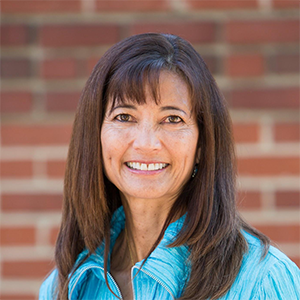
Dr. Christine (Crissy) Gayagas
Institute for Security Governance
Individuals with disabilities who need accommodations to attend this event may contact the USC Rossier Global Executive Ed.D. Program office at geedd@rossier.usc.edu. It is requested that individuals requiring accommodations or auxiliary aids such as sign language interpreters and alternative format materials notify us at least 7 days prior to the event. Every reasonable effort will be made to provide reasonable accommodations in an effective and timely manner.



